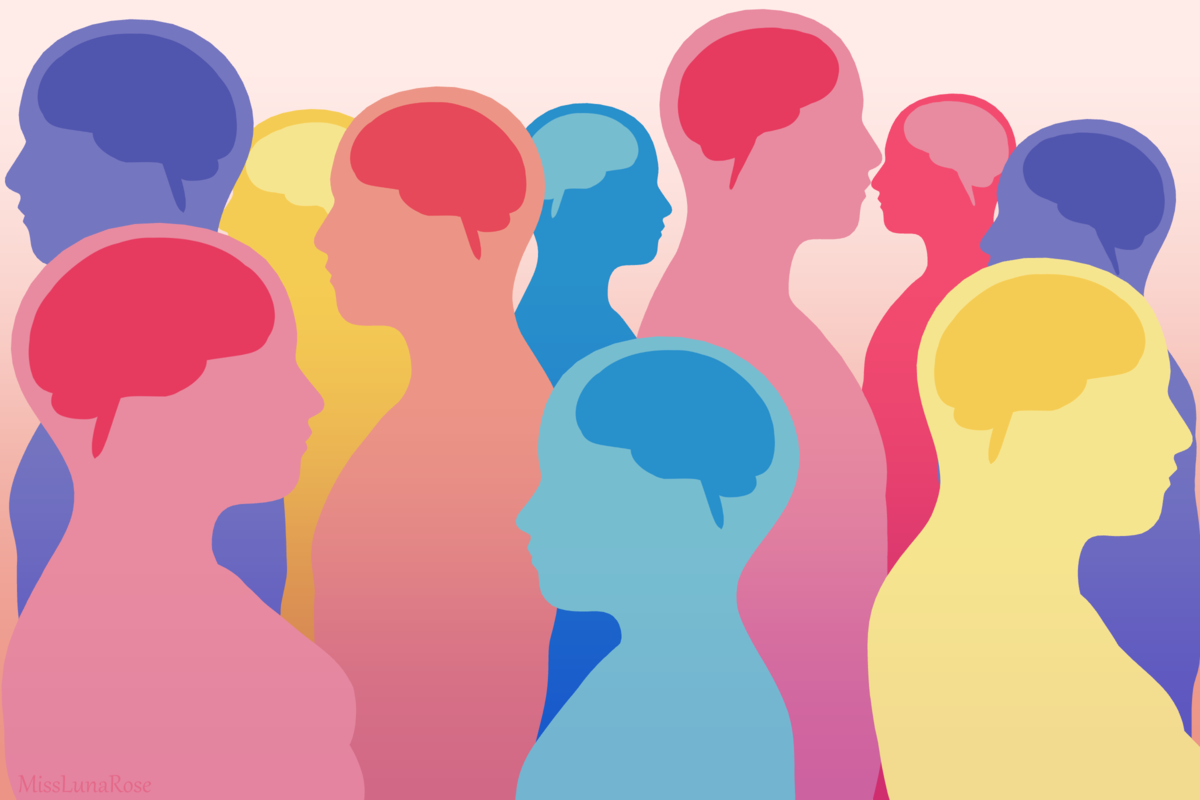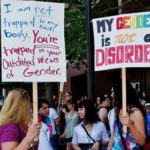
I, like many of us, have thought at times, am I neurotypical? From late-night panics that I have left the oven on, to a tendency to finish people’s sentences, I experience phenomena usually considered to be ‘atypical’ proclivities. But does this make me neurodivergent, or does it simply call for a reconsideration of what a ‘normal’ brain means, or even, if it exists at all? The intent of this article is to discuss the concept of neurodiversity, and the overwhelming reasons why society must be moulded to abandon the idea of a ‘normal’ brain. This is not only a way to stop neurodivergent individuals from feeling uncomfortable within the structure of current society, but to also give attention to the beauty and possibilities a neurodiverse population could bring. As Harvey Blume noted, “Neurodiversity may be every bit as crucial for the human race as biodiversity is for life in general”.
Neuro-typical individuals are those who have typical development and intellectual/cognitive functioning, meanwhile, neurodivergent individuals have less than typical cognitive variations such as Autism, ADHS, Dyslexia, etc. Neurodiversity is the inclusion of all individuals into one category which recognises that not all brains think and feel in the same way, and these are a result of differences in the natural variation in the human genome. As a neurotypical, however, I can still display qualities of neurodivergence but not cross the threshold for clinical diagnosis. Approximately 17% of the population have a clinical diagnosis of a cognitive variation but due to the high number of individuals who are not formally diagnosed or late-diagnosed, the actual percentage could be as high as 40%. This is conceivable as up to ¾ of girls with ADHD are not formally diagnosed and up to 42% of females are misdiagnosed on first assessment with a mental health disorder, other than rightly as autism. What this all leads to is that, in fact, almost half of the population has a cognitive variation, and even neurotypical individuals can have neurodiverse tendencies. It may seem here that I am trying to nullify the usefulness of the categorizations of neurodivergent and neurotypical, but this is not the purpose. Evidently, the ability for cognitive testing and hence diagnosis needs to be substantially improved, but the categorization is important to allow for clinical diagnosis which can help provide medical treatment if needed and simply a better understanding of oneself. What the overwhelming amount of cognitive variation calls for is the attention given to the concept of neurodiversity.
As already defined, neurodiversity is the inclusion of all individuals under a recognition that individuals in society are cognitively diverse. This has not yet been taken seriously enough in redefining society’s structure, although steps have been made such as the Individual Learning Programmes (ILPs) available here at Exeter University. This can allow for tailored teaching plans which can give extensions on essays, more time in examinations as well as breaks. However, this is problematic as it is only given to those with a formal diagnosis, and as discussed above, there is a large proportion of neurodivergent individuals not formally diagnosed, with women being most disadvantaged. I also think it is interesting to take an intersectional approach here. Intersectionality, coined by Kimberly Crenshaw, is the concept that individuals can face oppressions from different directions such as race, gender, ethnicity, sexuality, etc. This is relevant here as it is thought that individuals with different levels of oppression are likely to exhibit their neurodivergence in dissimilar ways. As discussed previously, women are less likely to get diagnoses, which supports the hypothesis. Those who accumulate forms of oppression are more likely to try and ‘hide’ their neurodivergence where possible, making their ability to be diagnosed much more difficult. Evidently, the clinical diagnostic tools need to be updated urgently and take an intersectional approach, but the adoption of neurodiversity as a society could aid, by encouraging neurodivergents not to ‘hide’.
To take neurodiversity seriously, would entail dramatically altering the structuring of current society, which is presently mostly built to favour neurotypicals. There is a similar argument made about the structuring of society around able bodies, extenuating the disability people face as an embodied subject in the world. In a podcast by In It: Supporting Kids Who Learn and Think Differently, the hosts comment that it is in fact the social world that makes neurodivergent feel more disabled because their interactions with a world structured only for the neurotypical body highlights their difference and makes their being in the world more difficult comparatively. An example of this is the unease people with Tourette Syndrome experience in public when they tic. Even though it is an uncontrollable action, they are frequently judged for their nonadherence to social norms and expectations. Evidently, as the disability movement has been calling for a restructuring of society to tackle ableism, society needs to be built around the concept of neurodiversity. We should not have to propose neurodiversity from a productive sense, society is actually losing out on a vast amount of innovation by not accounting for difference and attempting to make dual pathways for job applications, for example. Re-iterating, neurodivergents do not need to be more productive or more innovative to deserve the rights for inclusion in societal structure, but what we see from the famous neurodiverse individuals such as Bill Gates, Charles Darwin, Mozart and Michelangelo is that neurodiverse individuals can and do uniquely contribute to society. Neurodiverse individuals have distinctive strengths that neurotypicals do not, and not to appreciate and include them, can only be at our detriment. Bringing this back to what I first discussed: neurodiversity is like biodiversity, the higher level of diversity in the world that is accounted for and appreciated for its own sake, makes the world a more beautiful and richer place to live in.
To bring this argument full circle, to live in a world that adequately accounts for and appreciates neurodiversity would be beneficial to us all. For those who have neurodiverse tendencies, those undiagnosed and those diagnosed and facing everyday challenges to ‘hide’ their cognitive difference – because society has yet to be structured in an inclusive manner – it would be revolutionary. I wish to live in a world where people aren’t worried to embrace their true selves due to a fear of rejection from societal norms, where difference is beautiful and not seemed as simply abnormal. We can all benefit from a more inclusive structuring of society because, ultimately, we all experience the impact of society in shaping us to exist in the world in some predetermined manner. It is tiring for us all (although for some of us more than others) to have to pretend or hide our true selves because we do not fit into the status quo. But tell me, does anyone fit into the status quo? Is anyone really normal?
Additional resources:
The University of Glasgow, PGR Blog – Neurodiversity & Neurodivergent: What do they mean and how do they impact me as a PGR? https://uofgpgrblog.com/pgrblog/2021/3/24/neurodiversity
Work Design Magazine – Designing For Neurodiversity And Inclusion https://www.workdesign.com/2019/12/designing-for-neurodiversity-and-inclusion/
Aeon – After neurodiversity https://aeon.co/essays/neurodiversity-is-not-enough-we-should-embrace-psydiversity
Image: Neurodiversity Crowd, MissLunaRose12 (2019)//CC BY-SA 4.0



Average Rating